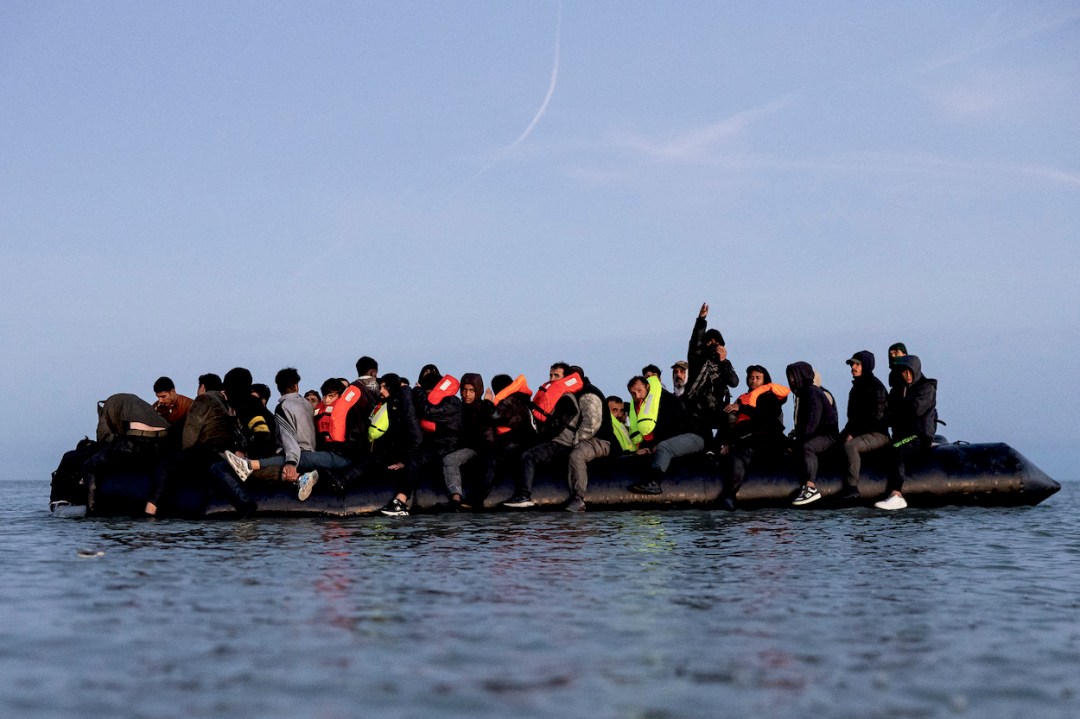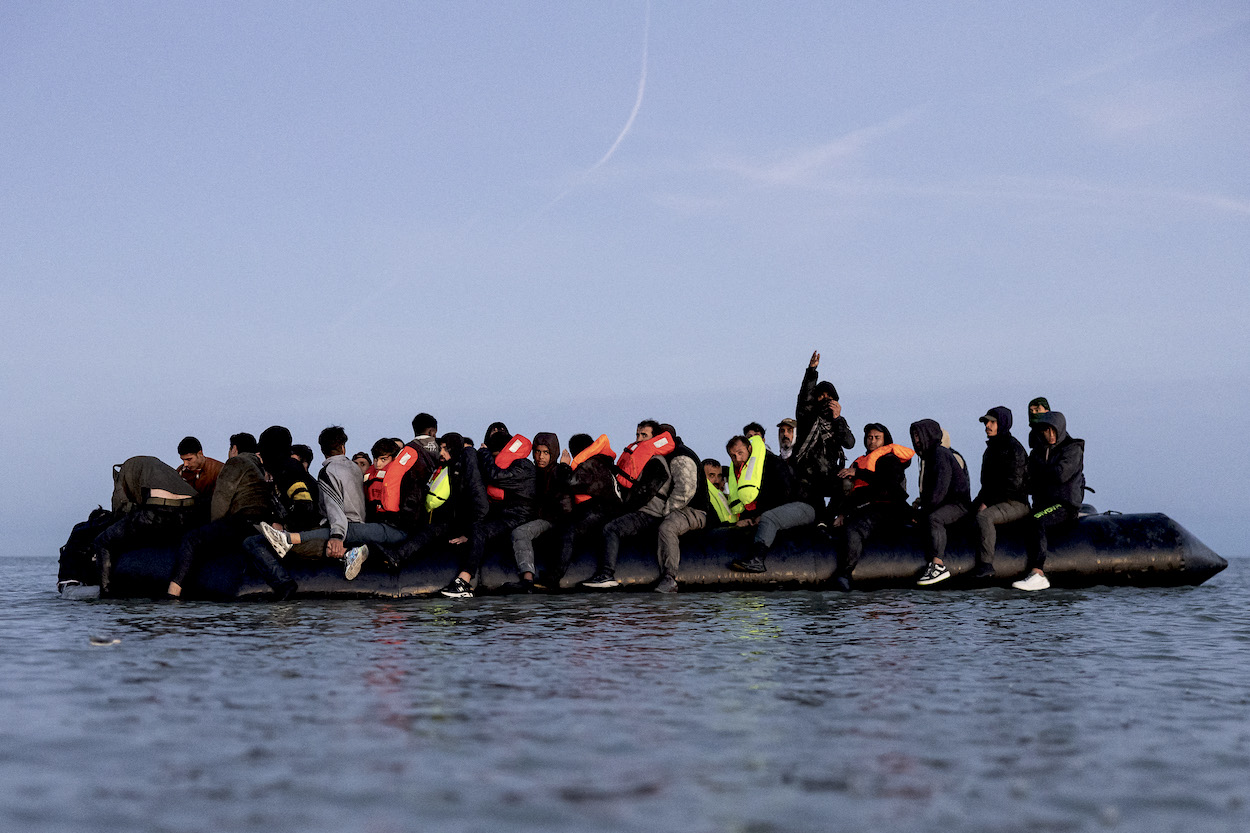France is not a safe country. That was the excuse given by an Iranian man who returned to Britain last weekend a month after his deportation. The man was one of the first illegal immigrants to have been sent back to France as part of the ‘one in, one out’ deal agreed between the two countries this summer.
The Iranian was detained on 6 August and deported on a scheduled flight on 19 September. He crossed the Channel last Saturday along with 368 other migrants, a handful of the 36,816 who have made the voyage this year, which is more than the figure for the whole of 2024.
Border officials identified the Iranian as a returnee using biometric checks, but he told them he had fled France a second time because he feels unsafe, describing himself as a slave of the people smuggling gangs. He is being held in an immigration removal centre pending deportation.
Even the most ardent supporter of Keir Starmer, if such a person still exists, would struggle to describe his vaunted ‘one in, one out’ deal as a success. It was introduced at the start of August and since then Britain has returned 42 migrants to France and received in exchange 23 asylum seekers.
In the same period the people smugglers have sent 11,000 migrants to England in small boats.
When the deal was announced in June I suggested that it would play out like every other government scheme to stop illegal immigration into Britain since 2002: ‘a firm handshake, a media fanfare and a complete failure.’
Illegal immigration is an industry, a lucrative business for smuggling gangs and human rights lawyers. There is no will from either the British or the French governments to take on these powerful bodies.
France’s latest coalition government – the fourth in a year – is the most left-wing yet. The Prime Minister Sébastien Lecornu may be a centrist, but he is at the mercy of the Socialist party. Last week they blackmailed him into suspending the pension reform bill, which had raised the retirement age from 62 to 64. If you don’t, the Socialists had warned, we will join the vote of no confidence and bring down your government.
The Socialists described the suspension as a ‘victory’ and one of their senior MPs, Boris Vallaud, proclaimed that ‘we can sanction the government at any time’. In other words, Lecournu is dancing to the tune of the Socialists and their 66 MPs.
The priority for the Prime Minister is to pass a budget for 2026, which will be no easy task given the divisions within parliament. Negotiations are ongoing and MPs are scheduled to start debating the fine print on Friday before a final vote on 4 November.
Immigration is way down the agenda for the new government
Immigration is way down the agenda for the new government. It’s not an important issue for centrists and Socialists in France. When the ‘one in, one out’ deal was announced in the summer, Olivier Faure, the leader of the Socialists, described it as ‘repressive’. He would prefer the establishment of ‘legal mechanisms enabling unaccompanied minors with family members in the United Kingdom to join them’. He would also like to integrate Britain into the Schengen area.
The new interior minister is Laurent Nunez, a technocrat in the mould of Emmanuel Macron. His predecessor was Bruno Retailleau, a man who was opposed to mass immigration and linked it to the rise in insecurity.
Nunez is more sensitive. In an interview on Wednesday, he refused to link the two because he didn’t wish to be ‘hurtful’. Nor did Nunez accept the term ‘migrant crisis’.
He got short shrift from Jordan Bardella, the president of the National Rally, who accused Nunez of ‘powerlessness at a time when our country is experiencing unprecedented chaos in terms of migration and security’. Bardella added that Nunez gave the impression that a ‘socialist had been appointed’ interior minister.
Britain is in a similar state to France. The country is in chaos and those in charge are powerless to restore order. The political elites appear to have given up trying to solve the migrant crisis.
If only they had the determination of those in the small boats. Like the Iranian man: if at first you don’t succeed, try, try again.









Comments